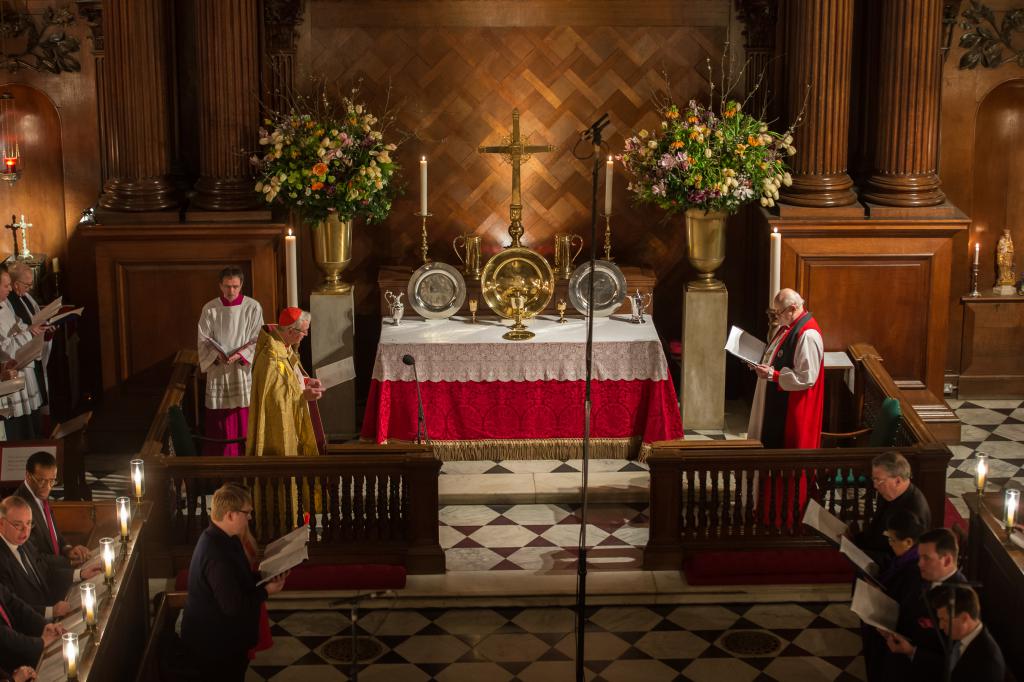By Anthony Baker
The 500th anniversary of Luther’s iconic nailing of his theses to the church door in Wittenberg provokes a mixed reaction in Catholic circles. Many of the principles of the Reformation were admirable. By the 1500s another purification of Christian belief and practice was overdue, and the Catholic Church had come through and embraced previous reform movements with renewed vigour. However, the actions of the Protestant reformers and the way they were handled by Catholic authorities had the disastrous effect of breaking up western Christianity and causing enduring conflicts. Thank God, in our own time there has been a gradual clearing of misunderstandings and a greater appreciation of the reformers’ insights. So it may be helpful to reflect more on the relevance of the Reformation and its lasting effects on our society today.
One lasting consequence may be argued to be the shift of power between ecclesiastical and civil institutions, and between the individuals and the institution. Previously Church and state had preserved an uneasy balance, not without disputes about the limits of jurisdictions, as in the investiture controversy. Where the Reformation combined with secular national developments to create state churches, as in England and in Sweden, religious jurisdiction became increasingly subject to state arbitration, with a much greater identification and overlap of secular and religious laws; the residues may still be seen in, for example, civil marriages and the right of a state church to opt out of the witnessing of same -sex weddings. By contrast the ‘fully reformed’ Calvinist movements such as in Scotland and the Netherlands, or indeed in the puritan movement in England leading to the Civil War, have always promoted strong elements of individual resistance to authority, secular or ecclesiastical, often with a resulting split into greater fragments to preserve a ‘purity’ of doctrine and practice.
The Reformers’ insistence on the Bible as the only source of theological and moral authority has also had continuing effects on the language of the people. Luther’s Bible provided an unchallenged source in the German-speaking world; English-language translations could provide ground for greater controversy, with King James bringing together a range of scholars to produce the definitive Authorised version of 1611. In both cases the Bible is a major source of everyday phrases, with most speakers now being quite unaware of their origin. The same is true about the impact of the sixteenth-century Anglican liturgy on the English language, powered by the majesty of Cranmer’s English, in many cases a translation of Latin originals.
In the arts, the reformers often enriched our culture, despite extreme reforms leading to regrettable iconoclasm and stripped-out churches. In the visual arts, the stress on the word certainly led to a focus away from religious themes, although the paintings of Rembrandt, for example, show the power of biblical inspiration. In German music, the Lutheran service patterns provided the ground for the creative genius of generations of composers, with JS Bach as the supreme example. Bach himself, however, was certainly familiar with Catholic forms and the B Minor Mass is argued by many to be the summation of his work.
Much has been made of the independence of mind allowed by the Protestant Reformation, ‘freed from the shackles’ of an all- powerful Church, and free to embrace scientific advances of the 17th century Enlightenment, but it can also be argued that the Enlightenment was not so much a struggle between religious ideas as the promotion of a secular reason in opposition to a religious faith: a continuing challenge.
Such issues are still relevant today, so a Conference on 28th October in St Albans will explore the continuing relevance of the Reformation from the standpoint of four speakers from different backgrounds: Bishop Martin Lund, a Swedish Lutheran Bishop; Dr Charlotte Methuen, an Anglican priest; Revd Dr Patricia Took, former President of the Baptist Union; and Professor John Morrill, a Catholic deacon from Cambridge University.
For further information and booking please call 01727 890290.
Pictured is Cardinal Vincent presiding at Vespers, the first celebration of a Catholic liturgy at Hampton Court since the Reformation, in February 2016. (Photo: Mazur/Catholicnews.org.uk)




